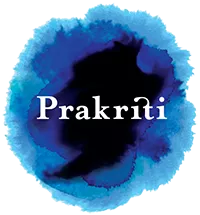
While learning about the History of Astronomy, the learners were asked to research on different astronomers and think did these astronomers display Truth and Courage in their lives and through their work. The learners prepared a common presentation for this.
Sharing a few reflections expressed by the learners – “Yes, Copernicus displays courage by standing alone, and defending his theories against the common beliefs of his time?” Another learner shared, “Kepler was courageous. Not only did persevere despite his health issues and financial challenges and did memorable work in his life for science and astronomy. But also there is an extraordinary and moving account of the astronomer Johannes Kepler’s long struggle to protect his mother from execution as a witch.”
A learner shared, “Do you know Galileo spent his final years under house arrest. His fault, he believed in Copernicus’s Heliocentric model and not the Geo-centric model. Barred from seeing friends or publishing books. He managed to smuggle out the manuscript for a new work, “Discourses and Mathematical Demonstrations Concerning Two New Sciences,” about physics and mechanics. The book, Galileo’s last, was published in Holland in 1638. That same year, Galileo went totally blind. Isn’t it courageous?” And a true story of quiet courage is that of Henrietta Leavitt. Her work was responsible for laying the groundwork for Hubble’s Law — which established that the universe is expanding – Unfortunately, Leavitt passed away in 1921, before she was nominated for such Nobel honor. She worked till her last breath at Harvard Observatory and did not give up in despair for not receiving the acclaim and recognition for her work.
The last learner who was sharing about Hubble’s work was confused and before beginning his part mumbled – “Was Hubble courageous or was it an easier way for him using Leavitt’s data? Wait I don’t know I am confused.” At the end of his work he said – Edwin Hubble is a hero to me. He pursued his dream and looked at the universe for years and collected data. He discovered that the Milky way is not the center of the universe and the universe is expanding. And the universe was much larger and bigger than what we thought. But the most important thing he was courageous as he was ethical and stayed true to himself. He himself often said Henrietta Leavitt should have won a Nobel Prize for her work.
A question that always comes to my mind as a facilitator – What is the role of School Celebrations in a learner’s life? How can we make it more meaningful for the learners? I felt happy listening to their reflections on what is the meaning of courage? Does courage mean absence of fear or fearlessness or does it mean making right choices and doing right things in the face of fear? OR Is courage a choice that one makes to stick to the truth, appreciating other’s work and giving credit to them?
About the author:
Ms. Divya Ajwani is a middle school Physical Sciences Facilitator
